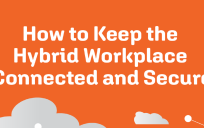Yesterday, I published an article called Networked Nonprofits: The Eva Longoria Case Study on the new SECTOR: PUBLIC blog. The post is about a recent, massive use of social media by celebrities to raise $540,000 for a Haitian orphanage. While certainly “good” was done, there are also questions about how much tweeting about a cause is too much, and what audiences expect on these new media channels.
There are also some serious questions about the overall value of online advocacy, versus real-life involvement in causes. In the coming issue of The New Yorker, Malcolm Gladwell writes a piece called Small Change, where he discusses “why the revolution will not be tweeted.” After describing and analyzing a similar situation (that of Darfur awareness and fundraising on Facebook), “Facebook activism succeeds not by motivating people to make a real sacrifice but by motivating them to do the things that people do when they are not motivated enough to make a rea l sacrifice… It makes it easier for activists to express themselves, and harder for that expression to have any impact.”
No doubt, there’s going to be some online backlash against Gladwell’s very strong stance. But what do you think of these articles? Can people supporting causes abuse social media channels to the point where it becomes information pollution, or do the ends justify the means for “social good”? And what do you think of Gladwell’s comments that online channels make it easier to express your support for a cause, to less effect?
What does this have to do with government?
Well, I think it’s only a matter of time before we see a lot of the same thing with government “causes” if Gov 2.0 and whatever we want to call Challenge.gov and other new ways of engaging the public takes off. Let’s just take Mariel Hemmingway for example. She’s got a huge Twitter following, and a second career in promoting healthy cooking, etc. through tv appearances, a cookbook, etc. She’s great, I’ve chatted with her a little bit.
But let’s say that she gets really, really into the First Lady’s healthier kids initative. And starts promoting it. Ad nauseum. Good for Michelle Obama and the White House, but where’s the limit for the celebrity “free agent” that helps the cause get better networked?
Right now it’s more common for pure nonprofits, charities, etc. But there is relevance in my article for “government causes” as well. What do you think?




I think there is and celebrities have been used in past in government. For example before the governator was elected he was on a exercise / health committee at white house.